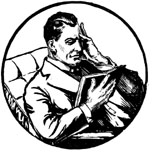
Why I’ve Tuned Out National Public Radio
ON THE WORSHIP OF THE MOLOCH OF EQUALITY
One day recently, prompted by programming on National Public Radio (NPR), I undertook a penance I had often threatened myself with on similar provocation but had firmly resisted: I listened to an hour of Rush Limbaugh.
Since 1956 I’ve listened to NPR via various state affiliates from Pennsylvania to Minnesota, including 26 years of broadcasts from Madison, Wisconsin. Over those 63 years, I’ve witnessed the steady drift of NPR’s programming downward and to the Left: the expectable, inevitable, massive movement of most institutions in a democracy.
By some fey magic, NPR manages to continue providing valuable programming: classical music; the narration of vital books; generally useful because informative programs about agricultural, medical, and scientific matters; and even news of events. The slant of commentary about events, however, as well as the choice of topics and sociopolitical pitch of most of its talk-show sessions, is obnoxiously slanted and blatantly partisan. It is sheer “progressive” propaganda. And this is particularly dangerous in a republic degenerating into a democracy.
National Public Radio pleads the cause of radical feminism. (Why isn’t this a form of sexism?) It foments racism by offering outrageous examples of it, all designed to demonstrate that nothing white is right. I can’t recall the last time it covered a case of egregious black-on-white or black-on-black violence. Recently, NPR has been treating listeners to endless harassment over “reparations” — even poetry is called to take sides — because some of our ancestors were here when slavery was legal. How does this bring people together in our society? If genuine reconciliation is to take place, then truly monstrous behavior in the past ought not to be forgotten, but it ought never to be emphasized by public media.
You May Also Enjoy
When considering Muslim tolerance, one might inquire: Are Muslim attitudes toward drinking alcohol tolerant? And how about free speech? Women's rights? Freedom of religion? Music and Art?
I have been making some snide remarks in recent columns about the talk shows that…
The fact that some arguments against strategic nuclear deterrence are faulty does not permit the conclusion that there are no compelling moral arguments against it.

